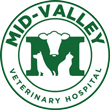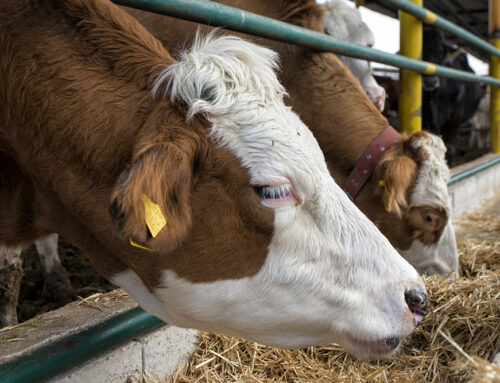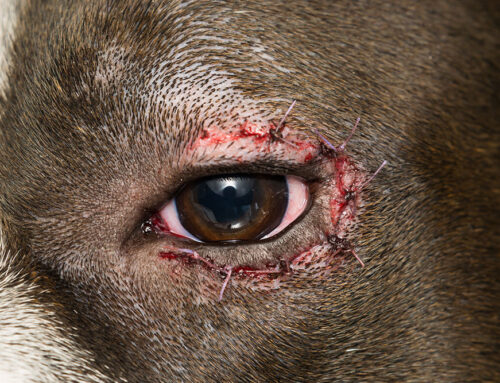The Critical Role of Proper Nutrition in Livestock Health
Healthy livestock begin with balanced nutrition. In Northern California’s diverse agricultural landscape, the right feeding program determines more than weight gain- it drives reproductive success, disease resistance, and long-term profitability. When cattle, goats, sheep, or swine receive complete and balanced diets, they maintain strong immune systems, convert feed efficiently, and reproduce reliably. When nutrition falters, everything else follows.
At Mid-Valley Veterinary Hospital, our team works directly with producers across the region to design feeding programs that keep animals thriving year-round. Through herd-level planning, nutritional assessments, and ongoing veterinary support, we help ensure your operation’s foundation- its animals- remains strong, productive, and healthy.
How Nutrition Shapes Livestock Health
Livestock depend on a continuous balance of energy, protein, vitamins, and minerals to sustain growth and reproduction. A deficiency in just one nutrient can start a cascade of health challenges, from weakened immunity to reduced fertility.
For most herds, nutrition is not just about survival- it’s about resilience. Animals with well-supported immune systems recover from illness faster, resist parasites more effectively, and remain more productive through environmental or seasonal stressors.
Vitamins, Minerals, and Micronutrient Balance
The Building Blocks of Health
Micronutrients such as copper, zinc, selenium, and vitamin A play vital roles in tissue repair, reproduction, and immune strength. Without these nutrients, animals cannot efficiently digest feed or maintain healthy growth.
Each species requires its own careful balance. Vitamins and minerals for goats differ significantly from those for cattle or sheep. Goats, for example, need higher copper levels, while sheep are much more sensitive to copper toxicity. Goats also require more zinc to support hoof health and coat condition. In contrast, cattle need adequate magnesium and phosphorus to prevent metabolic disorders like grass tetany and milk fever. For pigs, inadequate selenium or vitamin E can lead to muscle degeneration, poor growth, and reproductive failure.
Regular feed analysis, water testing, and mineral supplementation prevent these imbalances from becoming herd-wide problems. Many Northern California pastures are naturally low in selenium, so adding trace mineral supplements or injectable boosters during veterinary visits can make a measurable difference in performance and disease prevention.
Tailored Diets for Different Species
Every livestock species digests and metabolizes feed differently. Ruminants such as cattle, goats, and sheep rely on their rumen microbes to break down roughage, while monogastric animals like swine need more easily digestible ingredients.
Goats thrive on variety. Nutrition and feeding for goats should include browse and shrubs in addition to grass hay. High-protein feeds support milk production and growth, but mineral access is equally critical to prevent deficiencies.
Dairy cattle require carefully calculated rations. Basic nutrition for dairy cattle emphasizes balancing energy intake with protein and calcium levels to sustain both milk yield and fertility. Poor ration formulation can lead to ketosis, milk fever, or reduced conception rates.
Beef cattle have changing nutritional needs throughout the production cycle. Nutrient requirements of beef cattle shift between growing calves, breeding cows, and finishing steers. For producers in the Orland–Chico area, seasonal forage quality fluctuations often require supplemental feed to maintain weight and reproductive readiness.
Sheep share similarities with other ruminants but need higher energy and mineral concentrations relative to their size. Nutrition and feeding for sheep highlights the importance of balanced rations during breeding and lactation. Deficiencies in selenium or iodine can lead to weak lambs and increased stillbirth rates.
Swine nutrition is a precision science. Swine nutrition programs are formulated for each growth stage, optimizing amino acid balance, energy levels, and digestibility. Even small deviations in feed formulation can slow growth or reduce litter performance.
Recognizing and Preventing Nutritional Disorders
Early Warning Signs
Nutritional problems often develop slowly, so vigilance is key. Beef cattle nutritional disorders range from vitamin A deficiency, which can cause night blindness, to subtle mineral imbalances that impact fertility or immune function.
Common warning signs include:
- Reduced feed intake or inefficient weight gain
- Rough hair coats or poor hoof quality
- Decreased fertility and weak offspring
- Neurological changes such as incoordination
- Increased disease outbreaks or slower recovery
Because these issues often appear across multiple animals, consistent monitoring is essential for early intervention.
Preventing Nutritional Issues
The best prevention strategy is proactive management. This includes feed testing, body condition scoring, and regular veterinary oversight. Our herd health programs integrate nutritional evaluations with vaccination, deworming, and disease surveillance to keep your operation running smoothly.
For smaller operations, our individual animal health visits help identify subtle deficiencies in single animals or small groups before they affect productivity. Regular visits allow us to adjust supplementation, check mineral delivery systems, and ensure your feed program is keeping pace with herd demands.
Environmental and Seasonal Factors

Northern California’s varied terrain and climate add another layer of complexity to livestock nutrition. Drought, heat, and fluctuating forage quality all influence nutrient intake. During dry summers, pastures lose protein content quickly, and energy-dense supplements become critical. In wet winters, high-moisture forage may dilute mineral concentration, increasing the need for targeted supplementation.
Stress from heat or transport also alters nutritional requirements. Animals under stress require more antioxidants such as vitamin E and selenium to counter oxidative damage and support immune response. Balanced rations help mitigate the impact of environmental extremes while promoting overall resilience.
The Connection Between Nutrition and Reproduction
Reproductive performance is one of the clearest indicators of nutritional success. Energy deficits delay estrus cycles, reduce conception rates, and increase calving or kidding intervals. Conversely, overconditioning (excess fat) can lead to dystocia or metabolic issues after birth.
Our reproductive services team evaluates nutrition as part of every breeding consultation. We help producers align feed programs with reproductive goals- whether it’s synchronizing breeding seasons, improving conception rates, or supporting postpartum recovery. Balanced nutrition also enhances colostrum quality, ensuring newborns start strong.
Integrating Technology and Veterinary Expertise
Modern livestock management combines decades of husbandry knowledge with data-driven precision. Nutrition modeling software, feed testing, and automated delivery systems now allow producers to track exactly what their animals consume. These technologies improve efficiency while reducing environmental waste and feed costs.
At the same time, personalized veterinary support remains essential. Our large animal services team provides on-farm consultations, ration analysis, and nutrition-based herd evaluations.
Building a Sustainable Nutrition Program
Livestock nutrition is not static- it evolves with herd size, climate, forage conditions, and economic goals. Developing a sustainable feeding program requires regular review and adaptation. At Mid-Valley Veterinary Hospital, we view nutrition as a cornerstone of preventive medicine rather than an afterthought.
Our veterinarians collaborate with producers to balance animal performance with environmental stewardship. Whether you are managing a growing goat operation, a multi-species farm, or a large cattle herd, our veterinary partnership helps ensure optimal nutrition and profitability at every stage of production.
If you are seeing poor weight gain, reduced fertility, or declining herd health, it may be time for a nutritional assessment. Contact us at (530) 865-5634 to schedule a consultation with one of our veterinarians. Together, we can design a feeding strategy that strengthens your herd’s health, productivity, and resilience- because thriving livestock begin with thoughtful, science-based nutrition.







Leave A Comment